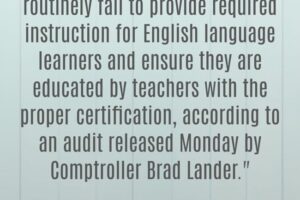
“Islands Of Competence” Seems Like A Good Framework To Encourage Student Self-Motivation
Typically, I scoff at the usefulness of articles written by people who work at very exclusive private schools, especially if they aren’t even teachers there but, instead, are administrators.
However, The Atlantic article headlined The Wrong Way To Motivate Your Kid (it should work as a gift link, but there are also other ways to access it behind its paywall), written by the head of school of one of the most exclusive schools in the country, is definitely worth reading.
Though he does betray the circles he runs it by making it sound all too easy, the framework he discusses is a useful one that any teacher anywhere can use.
He talks about a lot of the same things discussed in The Best Posts On Looking At Our Students Through The Lens Of Assets & Not Deficits, but, as I said, the framework can be helpful.
It’s worth reading the entire article, but here are the steps he suggests, along with some excerpts:
1. Identify the island.
Sometimes, a child discovers their own island. Other times, parents might want to nudge—to notice what comes naturally or brings their child joy, and then invite them to reflect on the activities and topics that light them up.
2. Name it.
Many children don’t recognize their own strengths, wrongly assuming that something they’re good at or that comes easily to them doesn’t have value. A child who patiently helps a younger sibling with homework may not self-identify as a teacher or a contributor to the household. Naming this strength can help them see themselves in a new light.
3. Build on it.
Research on motivation suggests that it is not just innate talent but also deliberate practice toward mastery that leads to long-term confidence and perseverance. Parents can offer children opportunities to develop their strengths through summer classes, clubs, and teams—or simply unstructured time at home.
4. Use strengths to address weaknesses.
Sometimes, a kid will hit a dead end and think they’ve failed. That’s the time for parents to say: You don’t need to be good at everything. Let’s remember your strengths—they might help you figure out where you can contribute.
5. Tell an optimistic story.
Family narratives are powerful. When children consistently hear messages about what they lack (she’s not a reader; he’s terrible at time management), these identities can solidify and become self-fulfilling prophecies. A family culture that celebrates strengths (I’ve noticed how you make people feel included; I love the stories you tell—your imagination always surprises me!) can foster a positive sense of self.
I’m adding this info to Best Posts On “Motivating” Students.
Source link




